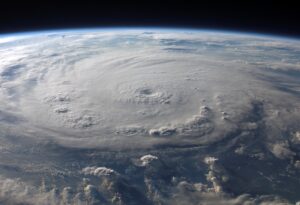Disaster Relief Fraud and ICO Fraud Making Headlines
Disaster relief fraud and Initial Coin Offering (ICO) fraud are two areas that have been making headlines recently. Based on communications reported in the media from government agencies, both areas will be the subject of government scrutiny in the next few years. With regard to disaster fraud, the Justice Department recently notified its personnel to improve efforts to fight it. The SEC has also created a Cyber Unit to improve its ability to address electronic and online violations of the federal securities laws, including ICO fraud.
Disaster Fraud
The Justice Department has directed U.S. attorney’s offices to target disaster relief fraud following Hurricane Harvey, Irma and Maria. In light of this direction, we expect they will be very interested in False Claims Act lawsuits involving disaster-relief funds. If you have evidence of disaster fraud, please call us at 1-800-590-4116 for a free, confidential consultation.
This has been a particularly severe hurricane season, so disaster relief fraud will be up. Hurricane Harvey caused devastating flooding in Texas as it produced record rainfall for the continental United States. Hurricane Irma brought extreme wind throughout Florida and knocked out power to million. Hundreds of thousands were still without power nine days after the hurricane hit. U.S. territory Puerto Rico was hit by the most recent Hurricane, Maria, which was a Category 4 when it caused severe damage there. Damage from the Hurricane Harvey and Hurricane Irma is expected to exceed $150 billion, about the same as Hurricane Katrina. Estimates of the damage from Hurricane Maria have not been released yet.
The United States has already authorized the spending of $15 billion dollars in disaster relief to Texas. Ultimately, the federal government’s aid to Texas, Florida and Puerto Rico could reach north of $100 billion. The National Flood Insurance Program could pay out as much as $11 billion to homeowners who purchased flood insurance. In response to Hurricane Katrina, the United States Government spent around $120 billion.
The National Center for Disaster Fraud has received more than 400 complaints so far of people trying to defraud FEMA. Following Hurricane Katrina, more than 1,400 people were charged with disaster fraud.
There were also a number of False Claims Act lawsuits filed following Katrina, alleging such things as that insurance companies classified wind damage as flood damage in order to cause the Government’s flood insurance to pay rather than the private homeowner’s insurance. We expect there will be more filed over the next few years if corporations involved in disaster-relief attempt to defraud the government.
Cyber Fraud
Last week, the SEC announced the creation of a Cyber Unit to address online violations of the securities laws. In the press release announcing the new unit, Stephanie Avakian, Co-Director of the SEC’s Enforcement Division, called cyber-related threats and misconduct among the greatest risks facing investors and the securities industry.The group will take on a variety of misconduct, including:
- Market Manipulation: Fake news spread through social media or other online channels. There have been several noteworthy attempts already to manipulate stock prices through online announcements or tweets that deceptively appear to be legitimate news organizations or corporate press releases.
- Hacking: The acquisition of material nonpublic information for trading as well as electronic intrusions into retail brokerage accounts.
- Initial Coin Offerings: ICOs have been a hot topic in startup fundraising in 2017 and estimates are that ICOs have collectively raised over $1 billion this year. In July, the SEC cautioned market participants that an ICO sale of tokens by “The DAO” was a securities offering subject to the federal securities law’s registration requirements. Although the SEC declined to bring charges against the company, the exploding usage of initial coin offerings creates the potential for ICO Fraud. Fraud can occur either by (1) publicly traded companies hyping their share price through exaggeration of their exposure to cryptocurrency as a service provider; or (2) startups promoting ICOs through deceptive disclosures. In August, the SEC suspended trading in four-OTC companies over questions about their ICOs and issued a warning about scams and “pump and dump” schemes by companies in this area.
- Dark Web: The dark web is an overlay network on the World Wide Web that requires specific software, configurations, or authorization to access. The dark web has for some time been a code word for nefarious activity beyond normal internet websites. The SEC didn’t specify precisely what conduct concerned it on the dark web, but a Fortune article published in January of this year suggested that corporate insiders were selling confidential corporate information on the dark web. The insider trading implications of this conduct are obvious.
- Threats to Trading Platforms and Other Critical Operations: The regulations of automated trading has been an important topic over the past few years as more electronic trading controlled by computer programs is happening. When those programs go awry, they can result in threats to the market.
The SEC already has been taking on these challenges, but the creation of the Cyber Unit will consolidate the enforcement efforts and expertise of the agency in one place.
What is considered fraud with FEMA?
FEMA, or the Federal Emergency Management Agency, is responsible for providing assistance to individuals and communities affected by disasters and emergencies in the United States. Any fraudulent activity that involves FEMA can have serious legal consequences. Here are some examples of what is considered fraud with FEMA:
- False registration: Providing false information when registering for FEMA assistance is considered fraud. This includes providing false names, addresses, or social security numbers.
- False damage claims: Claiming damages that were not actually incurred or exaggerating the extent of the damage is considered fraud. For example, claiming to have lost a valuable item that was never actually owned.
- Double-dipping: Receiving duplicate benefits from multiple sources for the same loss or damage is considered fraud. For example, receiving insurance benefits for damage and also receiving FEMA assistance for the same damage.
- Identity theft: Using someone else’s identity to apply for FEMA assistance is considered fraud.
- False proof of loss: Submitting false or fraudulent documents to support a FEMA claim is considered fraud. This includes falsifying receipts or estimates for repairs.
- False occupancy claims: Claiming that a damaged property was your primary residence when it was not is considered fraud.
- False rental claims: Claiming to have rented a property that was not actually rented or exaggerating the amount of rent paid is considered fraud.
If you are found to have committed fraud with FEMA, you may be subject to fines, imprisonment, and repayment of any funds obtained fraudulently.
Confidential Consultations
If you have evidence of fraud involving either disaster relief fraud or violations of federal securities laws through online means, please call us at 1-800-590-4116 for a free, confidential initial consultation. Both the False Claims Act and the SEC whistleblower program pay rewards to eligible whistleblowers who provide information to the U.S. Government that leads to fines or the recovery of government funds.



